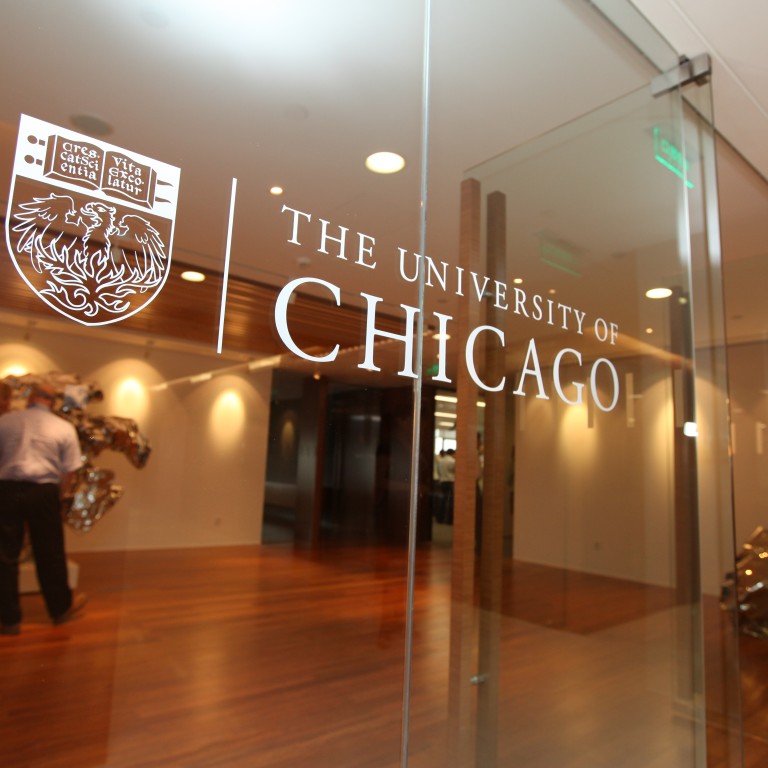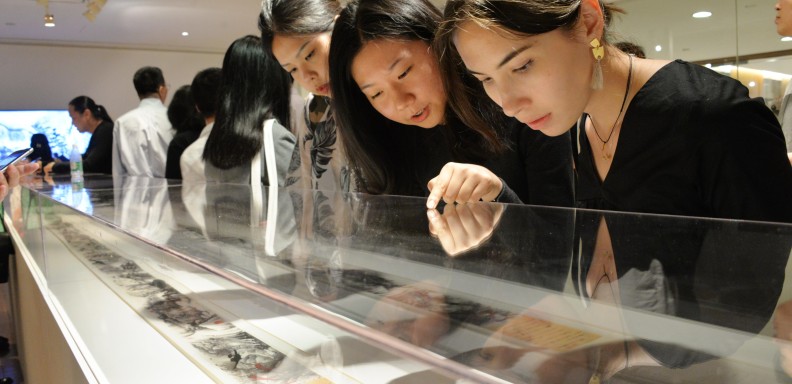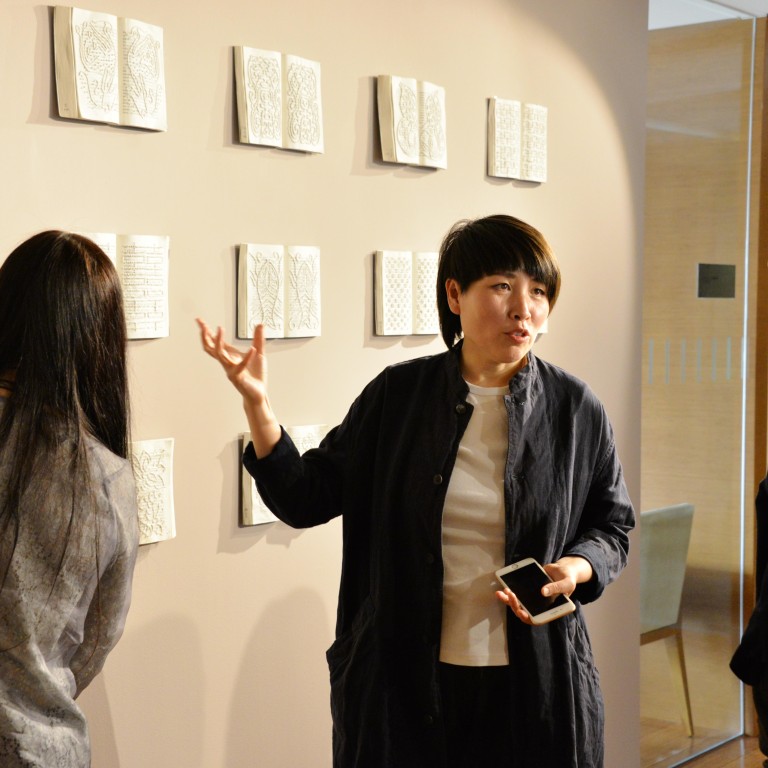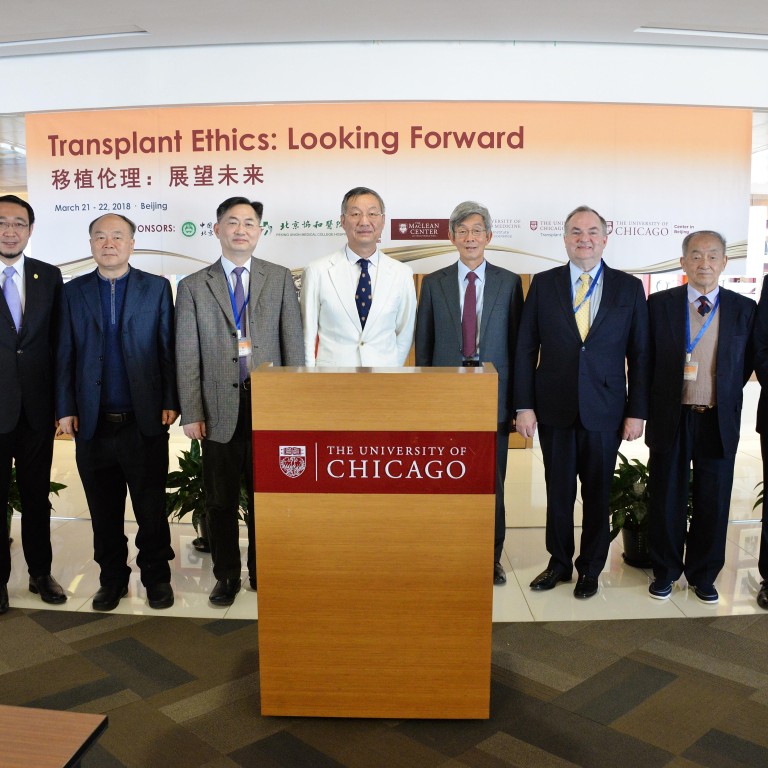On November 21st, Professor Patrick Jagoda, Director of the Department of Media Art and Design at UChicago, delivered a thought-provoking lecture at the invitation of the UChicago Center in Beijing, discussing the profound impact of electronic games on art, visual aesthetics, and narrative storytelling, as well as their influence on addressing significant societal issues. The center in Beijing also invited Professor Tang Keyang from Tsinghua University’s Future Lab to have a dialogue with Professor Jagoda and host the subsequent Q&A session.
Prof. Jagoda adopted UChicago’s characteristic interdisciplinary research approach, he explored the current state of electronic games, their academic study in American universities, and his own experiences leading game laboratories at UChicago. In his Lecture, Prof. Jagoda answered multiple questions that are at the center of people’s concern, such as “What kind of games are profound and meaningful? What kind of games escape reality or even reinforce the status quo? What kind of game can assist people in finding solutions to real-world challenges?”
Drawing from his book Experimental Games: Critique, Play, and Design in the Age of Gamification, Prof. Jagoda discussed the gamification paradigm’s quest for reducing uncertainty to achieve efficiency and control. He contrasted this with the experimental art science paradigm which embraces uncertainty, it transcends the superficial pursuit of instant gratifications and engages people in a more intense and joyful virtual reality.
Prof. Jagoda noticed how the neoliberal era is utilizing the increasingly prevalent video games to fulfill a narrow goal, thus, he proposed an alternative, emphasizing the potential for “serious games” to bring complexity into the concept of gamification, incorporating the aspiration and lifelong learning skill into narratives, journeys, and games that capture the interest of younger generations.
During the lecture, Prof. Jagoda demonstrated UChicago’s innovative approach to creating the alternate reality game “Terrarium” under the experimental art science paradigm. The game, combining elements from Twitch streaming media, live performances, gaming mechanics, and puzzles distributed across various platforms, encouraged players to picture a better climate future collectively. Students are required to interact with four characters from the year 2049 to help them escape their rooms. In the process, they submerge themselves in a miniature of reality, solving problems with skills from real life, conducting research on numerous apocalyptic scenes, and engaging in conversations with the “future” by cracking intricate codes and hacking into the computer systems. This facilitates them in learning logic, arithmetic and basic mathematics. At the climax of the game, students were asked to come up with ideas that could mitigate climate change, and answer them by drawing from disciplines including geophysical sciences, social sciences, humanities and arts.
Moreover, Prof. Jagoda explored the notion of serious games as a means to address “wicked problems’’, which are urgent and poorly formulated issues that don’t belong to any specific discipline. He discussed how games can stimulate curiosity, motivation, effort, and optimism, activate multiple learning styles, enable safe failure and resilience, and encourage systems learning, making them particularly suitable for addressing wicked problems.
The lecture also highlighted UChicago’s other prominent initiatives, such as the Transmedia Story Lab, Game Changer Chicago Design Lab, Fourcast Lab, and Weston Game Lab, all employing games and narratives to tackle wicked problems and explore the intersection of games with modern society.
In closing, Prof. Jagoda expressed his firm belief that games could offer an alternative worldview, emphasizing the attractiveness and fulfillment derived from cooperative games. The lecture called on people to embrace “serious games” to add depth to gamification and add fuel to lifelong learning and skills development.
This impactful event has left a profound mark in the heart of the audience for it enabled them to escape the existing limited pattern of video games and have a fresh perspective on the potential of games in shaping narratives, addressing social challenges and generating an ever-lasting impact in our society.



